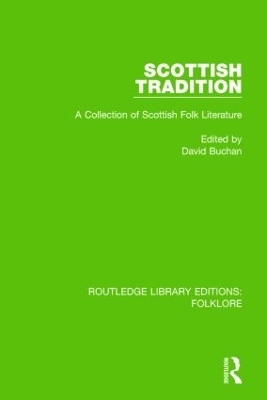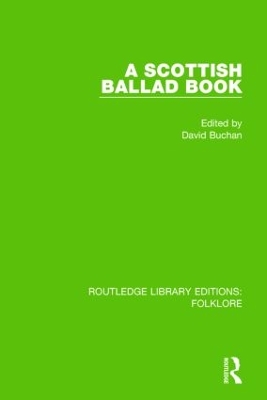Routledge Library Editions: Folklore
3 total works
The ballad is an enduring and universal literary genre. In this book, first published in 1972, David Buchan is concerned to establish the nature of a ballad and of the people who produced it through a study of the regional tradition of the Northeast of Scotland, the most fertile ballad area in Britain. His account of this tradition has two parallel aims, one specifically literary - to investigate the ballad as oral literature - and one broadly ethnographic - to set the regional tradition in its social context. Dr Buchan applies the interesting and important work which has recently been done on oral tradition in Europe on the relationship of the ballad to society to his study of this particular part of Scotland. He examines a nonliterate society to discover what factors besides nonliteracy helped foster its ballad tradition. He analyses the processes of composition and transmission in the oral ballad, and considers the changes which removed nonliteracy, altered social patterns, and seriously affected the ballad tradition. By demonstrating how people who could neither read nor write were able to compose literature of a high order, David Buchan provides a convincing explanation of the ballad's perennial appeal and an answer to the 'ballad enigma'. His book is also a valuable study in social history of this culturally distinct region, the Northeast of Scotland.
The popular appeal of the ballad is perennial, and few literary genres give so much pleasure to so many kinds of people. This anthology, first published in 1973, is drawn from the richest ballad tradition in Britain, that of the Northeast of Scotland. It provides a fresh and original choice of songs that ranges from the old ballads like ‘Gil Brenton’ and ‘Willie’s Lady’ to the bothy ballads like ‘The Tarves Rant’. The collection illustrates the development of a tradition over the centuries from the oral stage down to the modern, and exemplifies the methods of composition and transmission, the kinds of ballad-story, and the types of ballad-text found in the various stages of a ballad tradition. It illustrates the variety of subject matter, and indicates lines of relationship with other genres of Folklore Studies. A substantial section, containing what are widely acknowledged as the best of all British ballads, the oral ballads of Anna Brown, demonstrates clearly that the ballads are not merely simple or crude poems; in their oral form, they are narrative songs of some complexity and sophistication. This anthology is complementary to Dr Buchan’s The Ballad and the Folk.


